Congratulations to Fall 2018 alum Jamie Jenkins (née Fetherolf), who shared her fantastic research at the 99th annual meeting of the American Society of Mammalogists earlier this summer in Washington, DC! Jamie became involved with this extensive research project, during her participation in the Wildlife Ecology and Conservation semester program, as part of the “Research in Conservation” course. The research she conducted is part of a larger study that aims to understand how certain mammal species adapt to urbanization.
Her poster, titled “Mammal activity patterns along an urban to wild gradient,” presented results from her research in collaboration with Dr. Michael Cove, Postdoctoral Researcher, and Dr. William McShea, Research Ecologist, both based at the Conservation Ecology Center at the Smithsonian Conservation Biology Institute. Their study looked at the general activity patterns of common mammals using camera trap data from cameras placed across Washington, D.C. and northern Virginia. Their findings suggest that some mammals, like white-tailed deer, may shift their daily activity pattern in the presence of humans and increased urbanization. This information can be used to predict mammal range expansions and distributions as urbanization expands in the future. These human-induced temporal changes could affect species interactions with potential ecosystem-level impacts. Jamie has proven that her hard work and dedication to the study didn’t have to end when the semester came to a close.
More coverage of Jamie’s experience can be found at: https://www2.gmu.edu/news/573576
Abstract citation: Mammal activity patterns along an urban to wild gradient. Jamie Jenkins, Michael Cove, William McShea. American Society of Mammalogists 99th Meeting, Washington, D.C. 2019.


